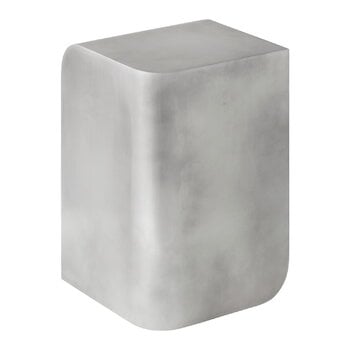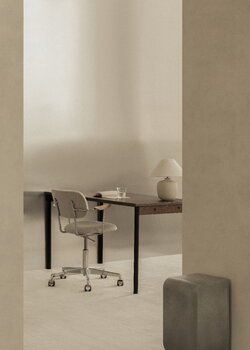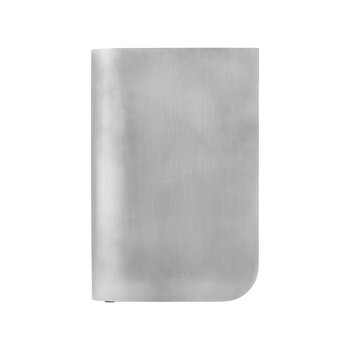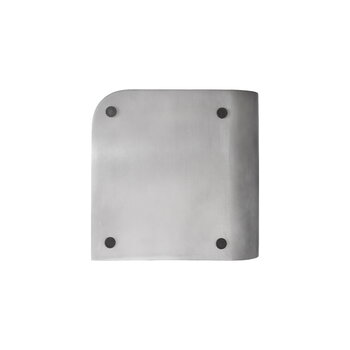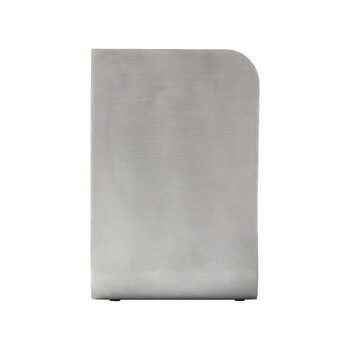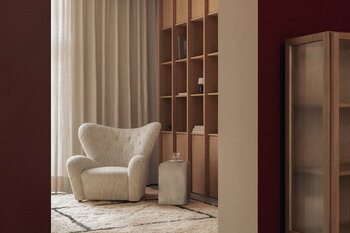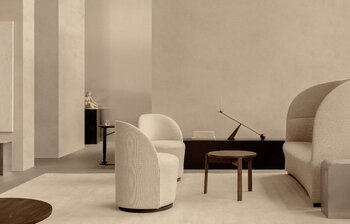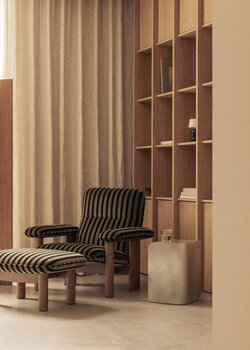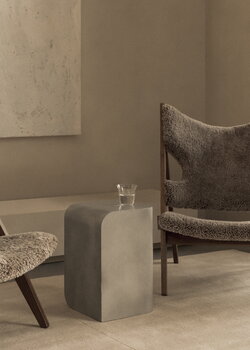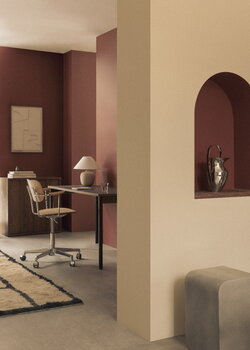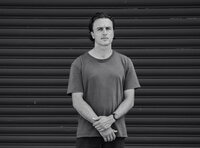Audo Copenhagen's Volume side table, designed by Ted Synnott, is a sleek aluminium table with a sculptural feel. Perfect as a coffee table or side table indoors as well as a small garden table on a balcony or patio, its design combines straight and curved lines, giving it a distinctive yet harmonious look. The polished aluminium finish enhances the table's elegance, while the lacquered surface makes it resistant to minor knocks and weather conditions. This makes the Volume side table a durable and easy-to-maintain addition to any space, indoors or out.
Volume side table
Audo Copenhagen
Description
Audo Copenhagen's Volume side table, designed by Ted Synnott, is a sleek aluminium table with a sculptural feel. Perfect as a coffee table or side table indoors as well as a small garden table on a balcony or patio, its design combines straight and curved lines, giving it a distinctive yet harmonious look. The polished aluminium finish enhances the table's elegance, while the lacquered surface makes it resistant to minor knocks and weather conditions. This makes the Volume side table a durable and easy-to-maintain addition to any space, indoors or out.
Product details (6)
- Colour
- Aluminium
- Width
- 30 cm
- Depth
- 30 cm
- Height
- 45 cm
- Material
- Polished and lacquered aluminium
- Care instructions
- Wipe with a wet cotton cloth and light soap, such as dishwashing soap. Wipe dry with a cloth.
- Product ID
Designer
Ted Synnott is a New Zealand industrial designer and furniture maker based in Auckland. Growing up on a farm, Synnott developed an early appreciation for traditional craftsmanship through his hobbies of painting and making clothes. This passion led him later to study timber furniture-making. In 2019, Synnott established his own design studio, where his philosophy centres on the union of simplicity, intuition and practicality, enriched with sculptural curves and surprising details.
View all productsReviews (0)
Sustainability
The Product Sustainability Framework, our criteria of sustainable design, helps you find the most sustainable products in our selection. Read below which sustainability criteria this product has met.
Working conditions & labour 7/9
-
Equal opportunities for all employees
-
Commitment to UN Global Compact, fair compensation for all employees
-
Corporate responsibility requirements defined and communicated for suppliers
-
Systematic work for improved inclusion and well-being in the workplace
-
Transparent supply chain
-
Suppliers' compliance to a code of conduct ensured
-
Compliance to the UN Guiding Principles on Business and Human Rights ensured in the supply chain
Eco-friendly production 8/9
-
Fair and resource-wise water-use in production
-
No incineration or landfilling of returned items
-
No use of endangered species as materials
-
No direct environmental emissions or waste (excl. GHGs) from production
-
The sustainability of direct suppliers' production is addressed and monitored
-
Production and material sourcing that respect biodiversity, animal rights, and natural ecosystems
-
Material-efficient and ecological packaging
-
No potentially harmful chemicals used in own production
Climate impact 4/8
-
Company's direct greenhouse gas emissions identified and commitment to reduction
-
Product's carbon impact identified and commitment to reduction
-
Guidance on energy- and eco-efficient use of the product
-
Carbon footprint of the product calculated and goals set to reduce it
Sustainable materials 6/6
-
Sustainable and long-lasting material choices
-
No harmful or hazardous substances
-
Responsible raw material sourcing and production
-
Materials suited for circularity: monomaterials, recyclable finishings, renewable or recycled contents etc.
-
Ecological materials: natural, biodegradable, recyclable or recycled contents
-
Outstanding materials in terms of innovativeness, responsibility, sustainability and circularity: local production or sourcing, 100 % recycled content, C2C-certification etc.
Circular design 4/5
-
High aesthetic quality promoting long-term use of the product
-
Technically durable product design and material choices
-
Design for enduring life-long quality
-
Design and support for product maintenance, repair and upgradability

